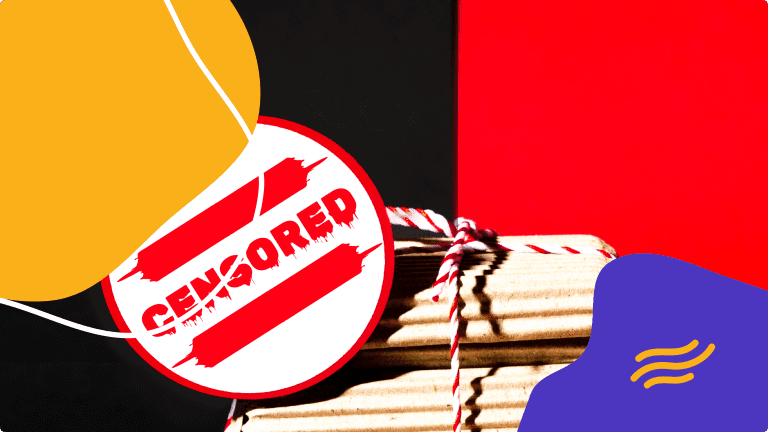In the world of education, there is a long-standing debate about censorship. Some people believe protecting students from harmful or offensive material is necessary. On the other hand, some people believe that it limits their ability to learn and grow.
To give you a deep insight into the topic, this EDU Blog will explore the motivations, effects, and delicate balance of censorship in schools.
Keep up with the latest developments in education and censorship by subscribing to EDU Passport. Stay informed about important topics that impact students and educators.
Why is there censorship in schools?
Censorship in schools is when someone in power, such as a school administrator or school board, decides what information can be shared in the school setting.
This can happen in several ways, such as:
Banning books or other materials from the library or classroom.
Removing or editing content from textbooks or other curriculum materials.
Disciplining educators or students for discussing controversial topics.
There are several reasons why censorship occurs in schools. Some of the most common reasons include:
To protect students from harmful or offensive resources. This may include material that is sexually explicit, violent, or racist.
To promote a particular viewpoint or ideology. This may be done by censoring material that challenges the dominant ideology or by promoting material that supports the dominant ideology.
To avoid controversy. School administrators may censor material in order to avoid complaints from parents or community members.
- To protect the reputation of the school. School administrators may censor material in order to avoid negative publicity.

How does censorship in schools affect students?
Censorship in schools can have multiple negative effects on students. Some of the most common effects include:
Reducing access to information. When students are not exposed to various viewpoints, they cannot develop critical thinking skills. They are also more likely to be influenced by stereotypes and misinformation.
Negative Impact on educators. When educators fear of being disciplined for discussing controversial topics, they may self-censor their lessons. This can deprive students of the opportunity to learn about important issues.
Sending a message that certain topics are taboo. This can make it difficult for students to talk about their experiences and to ask questions. It can also lead to feelings of isolation and shame.
- Increasing fear and anxiety. Students who are exposed to censorship may develop a fear of the unknown. This can make it difficult for them to learn and grow.
Should there be censorship in schools?
There is no easy answer to this question. On the one hand, protecting students from harmful or offensive material is essential. On the other hand, censorship can have many negative effects on students.
Ultimately, whether to censor material in schools should be made case-by-case. School administrators should carefully consider censorship’s potential benefits and drawbacks before deciding.
Is censorship in schools bad?
Censorship can be bad for students in several ways. As mentioned above, it can limit students’ access to information, chill educators’ free speech, and send a message that specific topics are taboo. This can make it difficult for students to learn and grow, leading to feelings of isolation and shame.
In addition, censorship can be used to promote a particular viewpoint or ideology. This can harm students because it prevents them from learning about different perspectives and forming their own opinions.

Why should there be censorship in schools?
There are a few reasons why some people believe that there should be censorship in schools. One reason is to protect students from harmful or offensive material. For example, some think schools should not allow students to read books containing graphic violence or sexual content.
Another reason for censorship is to promote a particular viewpoint or ideology. For example, some schools may censor material critical of the government or promote non-traditional values.
Finally, some people believe that censorship is necessary to avoid controversy. For example, a school may censor a book that parents or community members have challenged its content.
It is important to note that there are several arguments against censorship. As mentioned above, censorship can have some negative effects on students. Additionally, it can be used to promote a particular viewpoint or ideology, which can harm students’ creative thinking skills.
Ultimately, the decision of whether to censor material in schools is a complex one. There are many factors to consider, and there is no easy answer.
In a nutshell
Censorship in schools is a difficult balance to strike. It can protect students from harm and uphold an institution’s image. Still, it can also dim the light of diverse perspectives and critical thinking.
The best way to strike this balance is to take a case-by-case approach. Consider the specific material or topic being censored and the age and maturity of the students involved. It is also important to include students and parents in the decision-making process.
Ultimately, the goal is to create an environment where students can learn and grow while also being protected from harm. This is a complex issue, but it is worth discussing and debating.
What’s your take on censorship in schools? Join the conversation by sharing this EDU Blog and give your opinions. Let’s explore this complex issue together!







